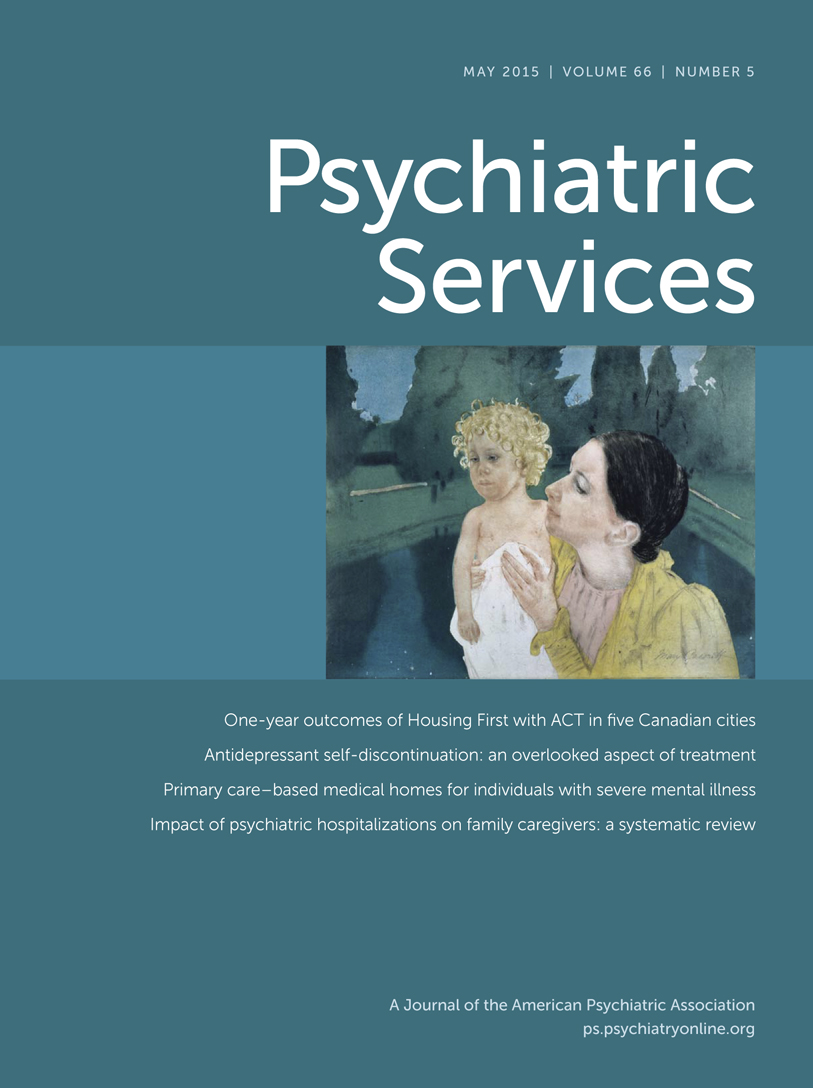Impact of Patients’ Psychiatric Hospitalization on Caregivers: A Systematic Review
Abstract
Objective:
A systematic literature review was conducted to assess the impact of patients’ psychiatric hospitalizations on caregivers.
Methods:
A systematic search of the Web of Knowledge, PsycINFO, and MEDLINE (PubMed) was conducted for peer-reviewed articles published in English before August 31, 2013. Qualitative, quantitative, and mixed-methods studies were included if they focused on the outcomes of caregivers of either adult or youth patients and presented data collected directly from caregivers of patients who had been psychiatrically hospitalized.
Results:
Twenty-nine articles met the inclusion criteria. The review found that caregivers are heterogeneous in their reaction to patients’ psychiatric hospitalization; however, many report distress. Many caregivers have reported experiencing stigma, disruptions in daily life, worse general medical health, economic strain, and changes in relationships after hospitalization. Negative reactions to the hospitalization may decrease over time, but distress can remain elevated compared with the general population. Nonetheless, many caregivers have also reported experiencing positive changes as a result of the hospitalization. The reaction of caregivers may be influenced by the severity of the patient’s psychiatric problems as well as the caregiver’s demographic characteristics and style of coping.
Conclusions:
Caregivers experience a range of reactions to psychiatric hospitalizations. Providing caregivers with psychoeducation about their possible reaction to hospitalization and teaching them coping techniques may improve clinical outcomes for patients. Future research is needed to understand the heterogeneity in caregivers’ reactions to patients’ psychiatric hospitalization.




